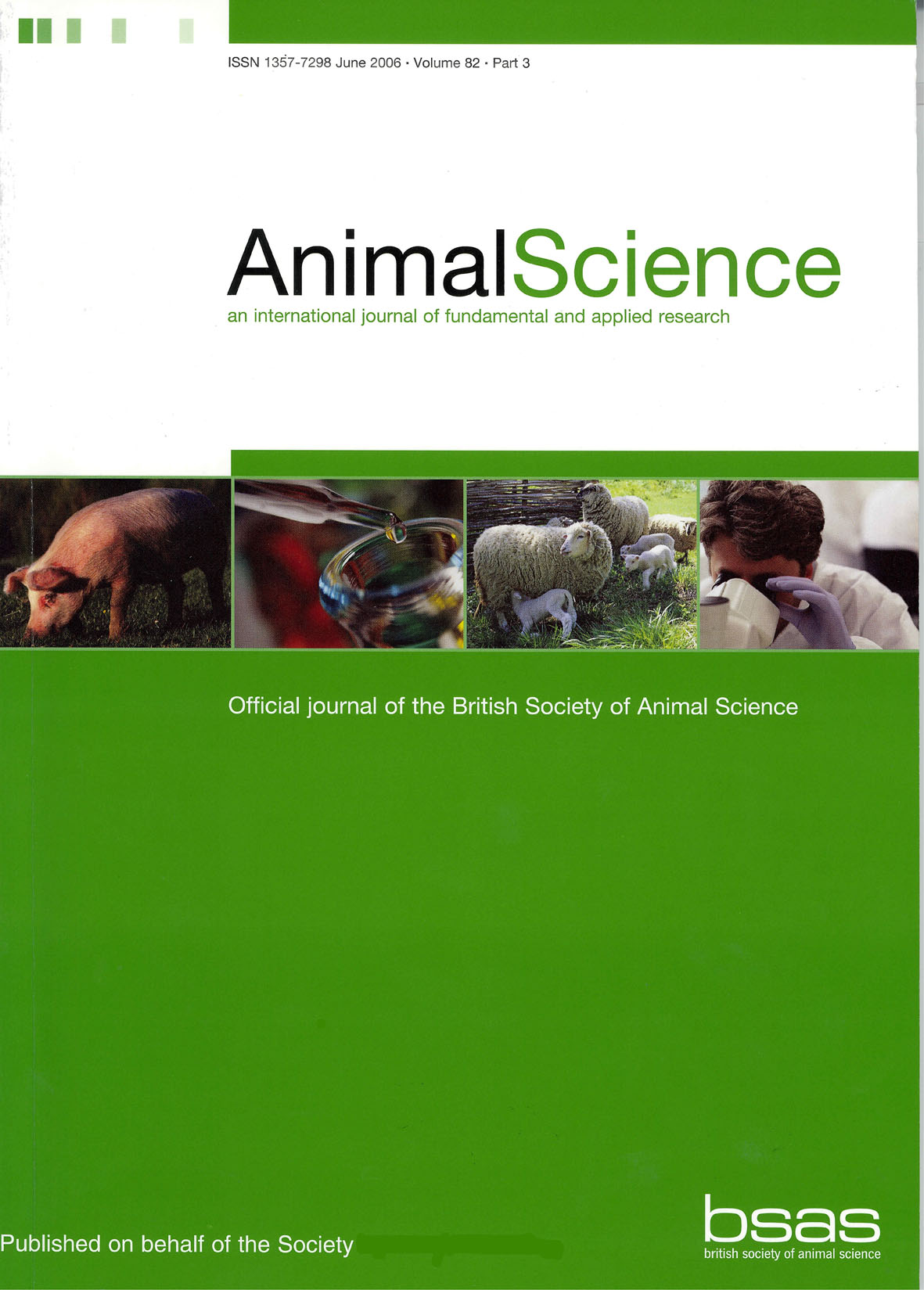Article contents
The influence of dietary energy source and dietary protein level on milk protein concentration from dairy cows
Published online by Cambridge University Press: 02 September 2010
Abstract
To investigate the effects of energy source and protein level of diets on milk protein content, 12 multiparous Holstein-Friesian cows were used in a 4 × 4 Latin square change-over experiment with 4-week periods. Four diets were offered, with ad libitum silage as proportionately 0·40 of the diet, and the remaining 0·60 as one of four concentrates, two based on barley and two on molassed sugar-beet pulp. Two protein levels were achieved by altering the amounts of digestible undegraded protein in the concentrates, with all diets formulated to supply equal quantities of rumen degradable protein. There was no effect of diet on dry-matter intakes. Both starch and high dietary protein levels significantly increased milk protein concentration (P < 0·05), but had no effects on milk fat and lactose concentrations. Mean milk yields were significantly higher (P < 0·05) with increased dietary protein. Dietary protein significantly affected the yields of milk protein (P < 0·01) and lactose (P < 0·05) but not that of fat. Urinary allantoin excretion was significantly greater with both high protein (P < 0·05) and starch-based diets (P < 0·05). No significant interaction effects were found. It is concluded that dietary effects were due largely to differences in supply of rumen degradable protein; increases in milk protein concentration were therefore brought about by increasing the protein supply to the animal.
- Type
- Research Article
- Information
- Copyright
- Copyright © British Society of Animal Science 1996
References
- 10
- Cited by


